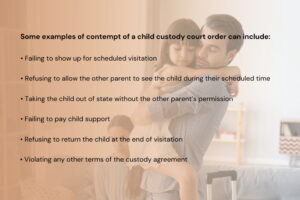Is Family Court Considered Civil Court?
Family court is a specific type of court that deals with legal matters involving family relationships. This includes issues like divorce, child custody, child support, and domestic violence. Civil court, on the other hand, deals with non-criminal legal disputes between individuals, organizations, or government entities. These include cases involving contracts, personal injury, and civil rights violations. Though family court focuses on family legal issues and civil court deals with a broader range of civil disputes, there are some similarities between the two. However, there are also several key differences that set family and civil courts apart in terms of jurisdiction, purpose, case types, and procedures.
Key Differences Between Family Court and Civil Court
Jurisdiction
The most fundamental difference between family court and civil court is jurisdiction. Jurisdiction refers to the authority of a court to hear certain types of cases within a defined geographical boundary.
Family Court Jurisdiction
Family courts have limited jurisdiction focused on family law matters. This includes:
- Divorce, annulment, separation, and custody disputes
- Alimony and child support issues
- Paternity suits
- Adoption and termination of parental rights
- Juvenile delinquency and child abuse/neglect cases
- Domestic violence protective orders and restraining orders
- Guardianship of minors or incapacitated adults
- Name changes
Family courts address any legal disputes arising from family relationships. Their jurisdiction is confined to these family law issues.
Civil Court Jurisdiction
Civil courts have broader jurisdiction covering all non-criminal disputes. These include:
- Contract disputes
- Property disputes, including real estate and landlord-tenant issues
- Personal injury and medical malpractice cases
- Product liability suits
- Defamation, libel, and slander cases
- Professional negligence and malpractice matters outside family law
- Business disputes and consumer complaints
- Environmental lawsuits
- Disability and discrimination cases
- Estate litigation after someone dies
Civil court jurisdiction encompasses any civil action seeking monetary damages or equitable relief, except those under family court jurisdiction. The scope is much wider than family court.
Purpose
Family and civil courts also differ in their fundamental purpose.
Purpose of Family Court
The purpose of family court is to resolve legal family disputes. The goal is to:
- Promote the best interests of minor children when making custody determinations
- Establish fair allocation of parental responsibilities like child support
- Divide marital assets equitably when dissolving marriages
- Protect victims from domestic violence
Family court aims to reach solutions that are in the best interests of children and families involved in disputes. The court helps families in transition during events like divorce or adoption.
Purpose of Civil Court
The purpose of civil court is to uphold statutory laws and civil rights. It does so by:
- Interpreting and applying laws to the facts of a case
- Determining appropriate remedies when laws are violated
- Establishing fault and assigning liability in civil cases
- Facilitating proper compensation for losses or damages suffered
The civil court system seeks to maintain social order, enforce rules, assign responsibility, and remedy violations of rights and agreements. It deals with a wider range of non-criminal matters.
Case Types
The types of legal cases handled in family and civil courts are also distinct.
Types of Cases Heard in Family Court
As discussed regarding jurisdiction, family courts handle cases involving:
- Divorce and separation
- Child custody and parenting time
- Child support and spousal support
- Domestic violence, abuse, and restraining orders
- Juvenile crimes and delinquency
- Child welfare, adoption, and surrogacy
- Guardianship of minors and incapacitated adults
- Name changes
- Emancipation of minors
Family legal disputes relate to marriage, divorce, children, and domestic situations. The case types reflect those domains.
Types of Cases Heard in Civil Court
Civil courts address a broad range of non-family disputes, including:
- Contract breaches and disputes
- Real estate lawsuits like foreclosures or boundary disputes
- Personal injury lawsuits and medical malpractice
- Defamation, slander, and libel cases
- Professional negligence and malpractice
- Consumer disputes with businesses
- Estate disputes after someone dies
- Insurance claims
- Housing discrimination and civil rights cases
Any non-criminal, non-family civil case may be heard in civil court. This encompasses a diverse range of disputes.
Procedures
There are also key procedural differences between family court and civil court when it comes to how cases are handled.
Family Court Procedures
Family court procedures prioritize mediation, cooperation, and intervention. Important distinctions include:
- Mediation is often mandatory to promote agreement before trial. Mediators facilitate compromise between parties on issues like alimony or custody.
- Hearings are typically closed to the public. Cases often involve sensitive matters, requiring privacy.
- Judges play an active role, questioning witnesses and parties directly. They investigate facts.
- Extra services are integrated, like counseling, forensics, and child advocacy. Support services assist with family transitions and welfare.
- Security is tighter, with separated waiting areas. Safety from domestic violence is ensured.
The process promotes negotiated settlement rather than adversarial litigation. The judge plays a central role.
Civil Court Procedures
Civil court procedures follow formal rules of civil procedure and evidence. Key aspects are:
- Little mediation – cases either settle or proceed to trial. No mandatory pre-trial mediation.
- Open public proceedings – civil trials are public and transcripts/records are available.
- Passive judge role – judges serve as neutral referees enforcing rules. Attorneys present cases.
- Limited integrated services – purely a legal forum, parties provide evidence.
- Open access/security – proceedings are open to the public, not segregated.
The civil court process depends on adversary system and formal procedures. The judge plays an impartial, passive role.
Similarities Between Family Court and Civil Court
While family and civil courts differ in significant ways, they also share some commonalities given they are both judicial forums.
Use of Judges
Both family court and civil court proceedings overseen by judges. Judges in each type of court have similar roles:
- Interpreting and applying the law
- Making rulings on points of law and admissibility of evidence
- Assessing facts and evidence presented
- Deciding outcomes of disputes based on applicable law
- Explaining legal reasoning for conclusions and rulings
- Issuing final judgments, decrees, or orders
Judges are central figures in legal decision-making who control proceedings in both family and civil court.
Following Laws and Court Rules
Although the specific laws differ, judges in both family and civil courts follow and apply relevant statutory and case laws. Court rules regarding evidence, procedure, and ethics also govern the conduct of proceedings in each forum. While the laws and rules differ depending on the nature of a case, judges in both forums adhere to the governing legal framework. This promotes consistency, fairness, and predictability.
Adversarial System
Both family and civil courts rely on an adversarial system where the parties involved present their own side of the case. Attorneys act as advocates for their client’s position in front of an impartial judge. One key exception is mediation proceedings in family court aimed at compromise. However, if a trial becomes necessary, family court also utilizes an adversarial structure. The adversarial framework is essential to arguing positions in relation to interpretation of law on both sides.
Conclusion
In summary, family court deals exclusively with legal disputes involving family relationships, while civil court handles all other non-criminal civil disputes. The two types of courts have distinct jurisdictions, purposes, case types, and procedures. Family court emphasizes mediation, cooperation, and intervention in family welfare. Civil court follows more rigid procedures focused on adhering to civil statutes, assigning liability, and enforcing remedies available under law. However, both types of courts do rely on judges, legal rules, and the adversarial system to render binding decisions on cases. Understanding the unique aspects of family court compared to broader civil court provides insight into how our justice system functions to serve different legal needs.
FAQs
Is family court considered a civil court?
Family court is a specialized type of civil court that hears cases involving divorce, child custody, domestic violence, and other family legal matters. However, family courts differ from broader civil courts in their jurisdiction, purpose, case types, and procedures.
What’s the difference between family court and civil court?
The main differences are that family courts focus specifically on family law disputes, emphasize mediation and intervention, limit public access to proceedings, and integrate family services. Civil courts address all non-criminal disputes, follow formal legal procedures, are open to the public, and do not integrate extra services.
Do the same rules apply in family and civil court?
While both follow general rules of civil procedure and evidence, family courts have additional rules tailored to their jurisdiction over family cases. Rules differ on issues like mandatory mediation, questioning witnesses, and privacy.
Are family court cases public like civil court?
No, family court proceedings are closed to the public because of the sensitive nature of many family disputes. Civil trials are open public proceedings unless sealed for specific reasons.
Can a case start in family court and move to civil court?
Yes, some matters like contract disputes over marital property agreements or professional negligence against a family attorney may start in family court but get moved to civil court if those issues become the central focus. The judge determines proper jurisdiction.







